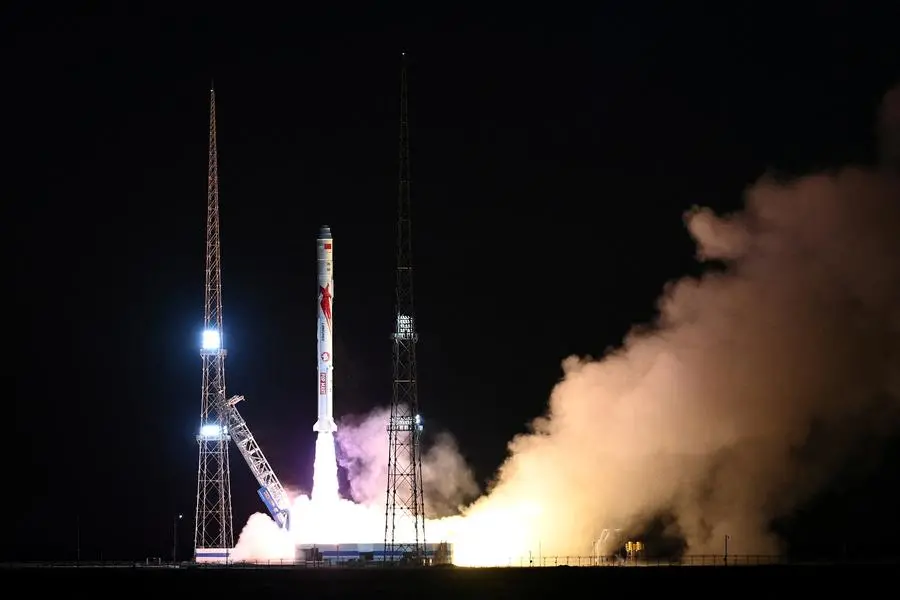PHOTO
BEIJING - A rocket developed by LandSpace Technology on Saturday launched three satellites into orbit, a milestone in the Chinese private rocket startup's mission to test whether its vehicle using methane and liquid oxygen is ready for commercial liftoffs.
The success could boost investor confidence in methane as a potential rocket fuel, which is deemed able to help slash costs and support reusable rockets in a cleaner and more efficient way.
Several private Chinese rocket startups have lined up test or commercial launches, aiming to prepare their products for the increasing demand in China's expanding commercial space industry, amid growing competition to form a constellation of satellites as an alternative to Elon Musk's Starlink.
Zhuque-2 Y-3 blasted off at 7:39 a.m. (1139 GMT on Friday) from Jiuquan Satellite Launch Center in China's Inner Mongolia region, becoming the third LandSpace test rocket for Zhuque-2, and the first that succeeded in lifting satellites.
A second attempt, without real satellites, in July made LandSpace the world's first company to launch methane-liquid oxygen rocket, ahead of U.S. rivals including Musk's SpaceX and Jeff Bezos' Blue Origin.
The two launches showed Zhuque-2 is reliable enough for commercial launches, LandSpace said in a statement.
LandSpace said the three satellites reached 460-km (285-mile) sun-synchronous orbit, without providing details on the types and overall weight of them.
Zhuque-2 is capable of putting payloads totalling 1.5 metric tons into 500-km (300-mile) orbit, which LandSpace plans to increase to 4 tons in upgraded versions, the Beijing-based company said.
Zhuque-2 Y-3 carried two 50-kilogram test satellites developed by Chinese startup Spacety, one of which has adopted technologies from a company named Hongqing, according to a Spacety statement on Saturday.
Hongqing said in a statement the rocket also carried one of its test satellites, without disclosing the weight.
The two Hongqing-linked test satellites in Saturday's launch are designed to support forming a low-orbit satellite constellation, said Hongqing, in which LandSpace holds a stake.
LandSpace said last year the first launch last December failed, without specifying whether the test rocket, Zhuque-2 Y-1, carried any satellite payloads.
The eight-year-old startup said earlier this year it plans to provide clients with about three launches in 2024 and double that in 2025.
Chinese startup OrienSpace said it has scheduled the debut launch of its solid-fuel rocket, Gravity-1, in December. Deep Blue Aerospace, which is developing a reusable kerosene-fuelled rocket, aims to complete next year its first test of launching the Nebula-1 rocket to orbit and recovering it.
Galactic Energy on Tuesday launched its solid-propellant rocket Ceres-1 with two satellites into orbit, after a failure in September and a series of successful launches earlier.
(Reporting by Roxanne Liu, Ella Cao and Ryan Woo; Editing by Josie Kao, Grant McCool and William Mallard)





















